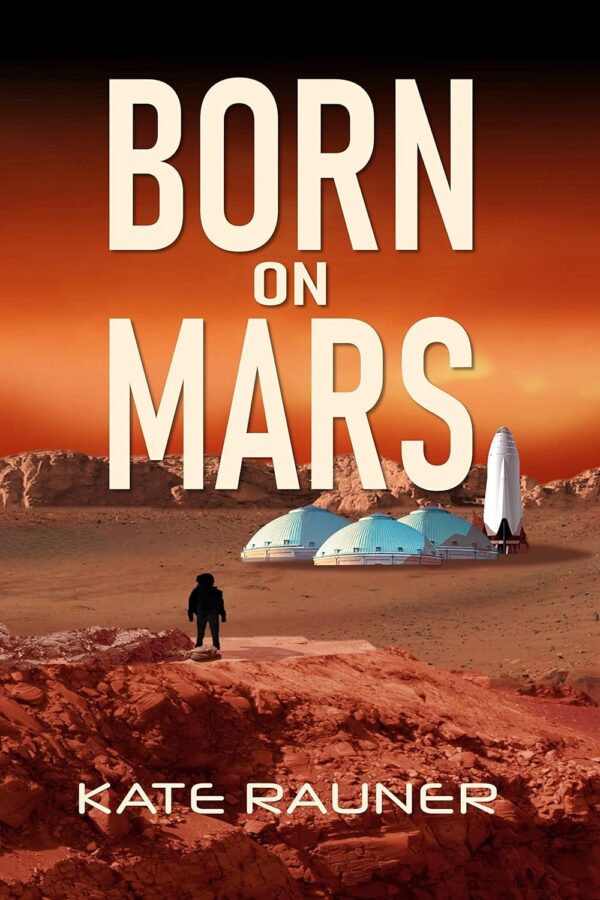Genre: Sci-Fi, Colonization, Mars
Reviewer: Scott
Get It On Amazon
About The Book
A slowly failing colony abandoned by Earth. New arrivals half a planet away. An unreliable young man desperate to save his friends and family.
Jake didn’t ask to be born on Mars. He drifts among tasks in his tiny settlement, never finding the purpose he craves. When a spaceship lands half a planet away, they bring technology his sick family desperately needs. But the new-comers refuse all efforts at contact.
Breaking through is Jake’s chance to redeem himself. When he connects with a Chinese ceramicist in the group, the man can’t resist his offer of Martian clay. The silence is broken. Jake travels to a new colony filled with vibrant settlers, including children. There, he meets strangers for the first time in his life.
Their ideas clash with what he’s been taught, but Mars makes the same demands on every human for survival. He finds friends. Enemies too. What sacrifices will they demand in exchange for his home colony’s salvation?
Born on Mars is a science fiction adventure grounded in the science of the Red Planet. If you wonder what settlers will face, if you ever imaged yourself exploring another world, you’ll love Kate Rauner’s tale.
The Review
I’m two books into Kate Rauner’s “Colonization” series, and am loving every minute of it. I’ve always been a sucker for a good mars book – see SI Clarke’s wonderfully diverse “Devon’s Island” series or the stunning “Mars Trilogy.” I love a good colonization book in general too, as humankind tries to set up shop on a new planet.
In Born on Mars, we’ve jumped ahead two generations from the events of book one, Glory on Mars. The Kamp nederzetting settlers are on their own, semi-abandoned by the organization that got them there – there are no new transports coming with additional settlers or supplies. The colonists have settled into a kind of stasis, growing their numbers while lacking the resources to build new machines, create modern medicines, or deal with the many little issues that have set in.
Jake is a second generation Martian. He’s still trying to decide what he wants to do with his life, and is filled with a wanderlust that’s a hard itch to scratch in a Martian colony. He tries out the Pathfinders – a group tasked with exploring the area around the colony when they’re not otherwise occupied with life support issues, subsistence living, or trapped inside during the annual Martian storm season.
Rauner throws in another factor this time around, a second colony funded by the Sino-African coalition – the Fenhuang District. While somewhat distant from Kamp, it’s reachable by air, or overland in one of the rovers. The District isn’t a very good neighbor, ignoring all attempts to contact it and normalize relations between the two colonies. Earth’s politics still loom large on Martian soil.
Jake’s discovery of clay on one of his pathfinding trips gives him just the excuse he needs to make contact with one of the District’s colonists who was a ceramicist back on Earth. He finagles himself an invitation to visit the newer colony, and the door between the two cracks open just a bit.
Like the first book, the research that went into this one was evident, but in the best possible way. No info dumps here, just a strong feeling that we’re right there on the Martian surface with Jake and his friends and family. The issues that living so close to a near-vacuum can bring provide a lot of the dramatic tension in the story, aided by the sometimes frosty relations between the two colonies, and the political machinations going in behind the scenes. Rauner contrasts them nicely – on the surface, the District is in much better shape, but both colonies have needs that only the other can fulfil.
And there are a few great whiz-bang surprises along the way too.
Two small nitpicks. I would have loved to see more diversity here in terms of the LGBTQ+ community – it is kinda my jam. And I’d also like to see more variation in the naming of characters, especially as they move ahead in generations. Only Oona really stood out among the Jakes and Marthas and Madisons and Olivias of the cast.
But these are minor quibbles that didn’t take away from the enjoyment of the overall story. For all his naiveté, Jake navigates the space between the two cultures admirably, and the ending was very satisfying. Another great Mars book from Rauner… I can’t wait to return to her version of the Red Planet for round three.
The Reviewer
Scott is the founder of Queer Sci Fi, and a fantasy and sci fi writer in his own right, with more than 30 published short stories, novellas and novels to his credit, including two trilogies.


